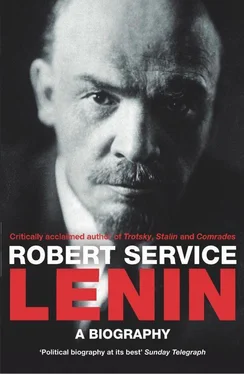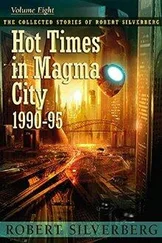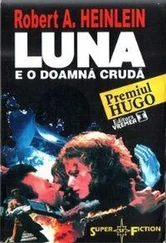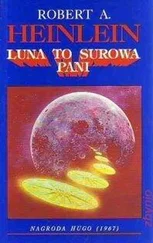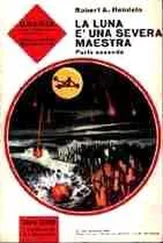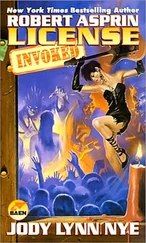Rayment, Henry: teaches English to L, 1
Razin, Stenka, 1
Razliv, 1
Recallists see Otzovists
Rech (Kadet newspaper), 1
Red Army: formed, 1, 2; repressions, 3; in Civil War, 4, 5, 6, 7, 8, 9; under Trotski’s regime, 10, 11; occupies territories lost under Brest-Litovsk Treaty, 12; independence, 13; Trotski proposes tranferring conscripts to ‘labour armies’, 14; and control of borderlands, 15; in 1920 war against Poland, 16, 17, 18; in L’s plans for ‘revolutionary war’, 19; Trotski sets up political commissariats, 20; and suppression of peasant uprisings, 21, 22, 23; suppresses Kronstadt naval mutiny, 24, 25
Reinbot, General and Mrs, 1, 2
religion: in Russian Empire, 1, 2, 3, 4
Resolution on the Formation of a Workers’ and Peasants’ Government (1917), 1
Revolutionary-Military Soviet, 1
revolutions see February revolution; October revolution
Ricardo, David, 1
Rimski-Korsakov, Nikolai Andreevich, 1
Romania, 1
Romanov dynasty: status, 1; L works for overthrow of, 2, 3, 4, 5, 6, 7, 8, 9, 10, 11, 12, 13; popular hatred of, 14, 15; family assassinated, 16; see also Nicholas II
Romberg, Baron Gisbert von, 1, 2
Roosevelt, Franklin D., 1
Rossolino, Professor Grigori, 1
Rovio, Gustav, 1, 2, 3
Rozanov, Professor Vladimir, 1, 2
Rozhkov, N.A., 1, 2
Rudzutak, Jan, 1
Rukavishnikov, Vladimir, 1
Russ, Herr (Zurich butcher), 1
Russell, Bertrand, 1
Russia (pre-revolution; Russian Empire): development and change in, 1, 2, 3, 4, 5; education in, 6, 7; revolutionary ideas and movements in, 8, 9, 10, 11, 12; oppressiveness, 13; capitalism in, 14, 15, 16, 17, 18, 19, 20; famines, 21; agrarian economy, 22; popular unrest in, 23; Manifesto of reforms (1905), 24; Bolshevik activities in, 25; legalises political party newspapers, 26; at outbreak of war (1914), 27; L’s separation from in war, 28; wartime arrests of Bolsheviks, 29; L forecasts revolution in, 30; and outcome of First World War, 31; Bolshevik revolutionary aims in, 32; 1917 offensive in First World War, 33
Russia (post-revolution): USSR founded, 1, 2, 3, 4, 5, 6; negotiates separate peace (1917–18), 7, 8, 9; terror in, 10; independent republics in, 11; as one-party state, 12, 13, 14, 15, 16, 17, 18, 19; isolation, 20; inter-republican constitutional structure, 21, 22, 23, 24; collapses (1991), 25
Russian Bureau (of Central Committee), 1, 2, 3
Russian Communist Party: L creates, 1; see also Bolsheviks
Russian Organisational Commission, 1
Russian Social-Democratic Labour Party: L’s proposals for, 1; draft programme, 2; Bolshevik-Menshevik split, 3, 4, 5; organisation, 6, 7, 8, 9; L’s dominance in, 10; favours revolution, 11; L recruits activists to, 12; and 1906 Duma elections, 13, 14; complicity in bank robberies, 15; factional disputes, 16, 17; L decides on Party Conference (1911), 18; Prague Conference (1912), 19; L’s reputation in, 20; bureaus, 21, 22
Central Committee: reproaches L, 1; plenum (1910), 2; meets in Paris (1911), 3; elections and composition, 4; concentrates on Russian Empire, 5; organisation, 6; supports Provisional Government, 7
Russian Social-Democratic Labour Party (cont.) Congresses: 1st (1898), 1; 2nd (1903), 2, 3, 4, 5, 6, 7; 3rd (1905), 8, 9, 10, 11; 4th (1906), 12, 13; 5th (1907), 14, 15; 6th (1917), 16 see also Bolsheviks
Russian Socialist Federal Soviet Republic (RSFSR): relations with other republics, 1, 2, 3, 4
Russian Thought (journal), 1, 2
Russo-Japanese War (1904–5), 1, 2, 3, 4
Russo-Turkish War (1877–8), 1, 2
Rykov, Alexei, 1, 2, 3
Sabunaev, M.V., 1
Safarov, Grigori, 1
St Germain, Treaty of (1920), 1
St Petersburg (Petrograd; Leningrad): University, 1, 2, 3; founded and built, 4; L in, 5, 6, 7; textile strike in (1895), 8; 1905 ‘Bloody Sunday’, 9; L returns to (1905), 10; Soviet, 11, 12, 13, 14, 15, 16, 17, 18, 19; Krupskaya visits (1907), 20; connections with Kraków, 21; 1914 strikes, 22; Bolsheviks arrested in, 23; renamed Petrograd, 24; February 1917 revolution, 25; L stays in on 1917 return to Russia, 26, 27, 28; cultural vitality, 29; worker control of factories, 30; armed Bolshevik demonstrations (1917 ‘July Days’), 31, 32, 33; L returns to after refuge in Finland, 34; in October Revolution, 35, 36; L and Krupskaya reunited in, 37; L moves seat of government from, 38; L revisits, 39; Yudenich marches on, 40; L’s final visit (to 2nd Comintern Congress 1920), 41; 1921 strikes in, 42; renamed Leningrad, 43
Samara, 1, 2, 3, 4, 5
Samara province, 1, 2 Samoilov, Fëdor A., 3
Sapronov, Timofei D., 1 Sarajevo: 1914 assassinations, 2
Sarbatova, Varvara, 1, 2, 3, 4
Sasha (housemaid), 1, 2
Savelev, Maximilian, 1 Schapiro, Leonard, 2
Scientific Review, The , 1
Second Socialist International see International, Second (Socialist)
Semashko, Nikolai, 1, 2
Serebryakov, L.P., 1
Shalyapin, Fëdor, 1
Shevyrëv, Pëtr, 1, 2
Shklovski, G.L., 1
Shlikhter, Alexander, 1
Shlyapnikov, Alexander, 1, 2, 3, 4, 5, 6, 7, 8
Shmidt, Nikolai P.: legacy, 1, 2, 3, 4, 5
Shotman, Alexander, 1, 2, 3, 4 show trials, 5
Shteinberg, Isaak, 1
Shukht, Apollon, 1
Shukht, Asya, 1
Shushenskoe (Siberia), 1, 2, 3, 4, 5
Siberia: L exiled to, 1; peasant uprisings (1921), 2, 3
Sibiryakov, Konstantin, 1
Simbirsk ( later Ulyanovsk), 1, 3, 5, 6, 7, 8, 9, 10, 11, 12
Simbirsk Provincial News , 1, 2
Sismondi, Jean Charles Léonard de, 1
Sklyanski, E.M., 1
Sklyarenko, Alexei, 1, 2
Skobelev, Mikhail, 1
Skvortsov, Pavel, 1, 2
Skvortsov-Stepanov, Ivan I., 1
slogans, 1, 2, 3
Social-Democrat (newspaper), 1, 2
socialism: L’s practice of, 1, 2; and international revolution, 3, 4, 5
Socialist International, Second see International, Second (Socialist)
Socialist-Revolutionaries see Party of Socialist-Revolutionaries
Sokolniki, 1
Sokolnikov, Grigori, 1, 2, 3
Sokolov, V.N., 1
Soloukhin, Valentin, 1
Solzhenitsyn, Alexander, 1
Sorin, Vladimir, 1
Soviet Union see Russia (post-revolution)
soviets: established, 1; Bolsheviks despise, 2; L wishes to form basis of power, 3, 4, 5, 6, 7, 8; Bolsheviks enter, 9, 10; Menshevik and Socialist-Revolutionary strength in, 11; support Sovnarkom, 12; international usage, 13
Sovnarkom (Council of People’s Commissars): L sets up, 1; L chairs, 2, 3, 4, 5, 6; exercises power, 7, 8; soviets support, 9; composition, 10; at Smolny Institute, 11; proceedings, 12; breaks up Constituent Assembly, 13, 14; asserts authority, 15; moves to Moscow, 16; represses Mensheviks, 17; and L’s socialist policies, 18; under authority of Politburo and Orgburo, 19; administration, 20; runs one-party state, 21
Spartacus League (Germany), 1
Spencer, Herbert, 1
Spengler, Osvald: The Decline of the West , 1
Stalin, Iosif Vissarionovich: L denounces and attempts to remove (1923), 1, 2, 3; seized by Okhrana, 4; urges L to attempt to persuade Bolshevik deputies, 5; supports Provisional Government, 6; opposes land nationalisation, 7; efficiency, 8; lodges with Alliluevs, 9; shaves off L’s beard and moustache, 10; appointed Commissar for Nationalities Affairs, 11, 12; refuses compromise with socialist parties, 13; disbelieves European socialist revolution, 14, 15; recalls L from holiday for advice, 16; doubts on separate 1918 peace, 17; in Moscow, 18; disputes with Trotski, 19, 20, 21; L criticises for losses in Civil War, 22; in war against Poland, 23, 24, 25; dispute with L over European socialist union, 26; in ‘trade union discussion’, 27; approves introduction of NEP, 28; appendectomy, 29; and L’s suicidal state, 30, 31; as party General Secretary, 32; L proposes excluding from Central Committee, 33; opposes L on foreign trade and constitution, 34, 35, 36; L’s growing hostility to, 37, 38, 39, 40, 41, 42; and L’s deteriorating condition, 43; and status of Georgia, 44, 45; allows L to dictate to secretaries during illness, 46; abuses Krupskaya, 47, 48; oversees L’s medical regime, 49; in L’s political testament, 50; orders burning of L’s ‘Letter to the Congress’, 51; displeased at L’s health improvement, 52; L rebukes by letter for abuse of Krupskaya, 53; attempts to persuade wife to cease being party member, 54; at 12th Party Congress, 55; rebuffs Trotski’s Left Opposition, 56; at L’s death and funeral, 57; advocates display of L’s corpse, 58; relations with Krupskaya after L’s death, 59; memorialises L, 60; dominance and regime after L’s death, 61, 62; and Great Terror, 63; initiates First Five-Year Plan, 64; Khrushchëv’s revelations on, 65, 66; prohibits publication of L’s correspondence, 67; Questions of Leninism , 68
Читать дальше
